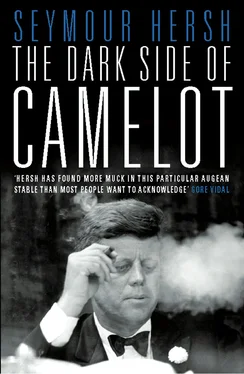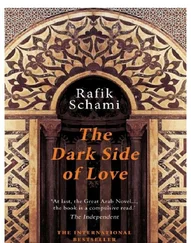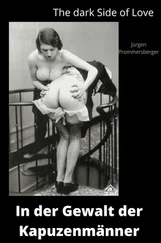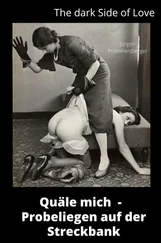Money bought Joseph P. Kennedy enormous personal freedom, and bought his son the presidency.
At his death in 1969, Joe Kennedy’s private estate and various trust holdings were estimated by the New York Times to be worth “perhaps $500 million.” A complete accounting of what he owned, and how he got there, simply could not be obtained then, nor does one exist today. Joe Kennedy spent his life making money—and hiding it.
The Kennedy family biographers, relying on material supplied by Joe Kennedy, his wife, Rose, and other family members, have provided a familiar chronology of achievement that begins with Kennedy, a few years after his graduation from Harvard, becoming president of the Columbia Trust Company, a small Boston bank, and becoming known as the youngest bank president in the nation. Eager to avoid active duty in World War I, he left the bank in 1917 to become assistant general manager of Bethlehem Steel’s huge Fore River ship-building plant in nearby Quincy. He left the shipyard after the war to join the brokerage firm of Hayden, Stone and Company in Boston, where he was an instant success. Within a year, he generated enough money by speculating in the stock market to buy a new twelve-room home in suburban Brookline—he and Rose then had four children—and also a new Rolls-Royce. Kennedy left Hayden, Stone in 1923 and, setting up shop as an independent banker, began speculating full-time in the stock market. By 1927, generally considered to have made millions, Kennedy had moved his burgeoning family to suburban New York and himself into the movie business, where he once again was said to have made millions. With his uncanny instinct for trends, he began pulling out of the high-flying stock market before the Wall Street crash of October 1929.
In 1931, no longer a movie magnate, Kennedy became a major contributor to and fund-raiser for Franklin D. Roosevelt’s first successful campaign for the presidency. Roosevelt astonished Washington and Wall Street in mid-1934 by naming Kennedy, who was notorious as a stock market manipulator, chairman of the Securities and Exchange Commission (SEC), a New Deal agency set up to reform and regulate the financial markets. FDR was said to have explained the perplexing choice by citing, with a laugh, an old saw—“It takes a thief to catch a thief.” There was a brief stint later as chairman of the Maritime Commission and a disastrous three years as U.S. ambassador to England, where by 1940 Kennedy’s isolationism and vocal skepticism about England’s ability to continue the war against Germany made him enormously unpopular abroad and at home. It was his last government post. Kennedy would spend the next twenty years shuttling between homes in Palm Beach, Florida, and Hyannis Port, Massachusetts, shepherding the careers of his nine photogenic children and making huge amounts of money in real estate and business. After his son’s election to the presidency, Joe Kennedy served as a one-man kitchen cabinet until his severe stroke in December 1961. He remained an invalid, able to comprehend but unable to speak, until his death in 1969. He had outlived his daughter Kathleen and three sons—Joe, Jack, and Bobby.
Joe Kennedy was, by all accounts, a brilliant corporate predator and an expert manipulator of both Wall Street and his fellow investors. What is missing from the published accounts, and the public record, is an appreciation of how Kennedy was also able to profit from his understanding of the corruption that made American big-city politics work, knowledge that he acquired at the side of his father-in-law, Honey Fitz.
The House Elections Committee files make clear that Kennedy, at a minimum, served as a money man during Fitzgerald’s campaign against Peter Tague; the committee generated evidence showing that Fitzgerald’s decision to challenge Tague, a fellow Democrat, had been mandated by party bosses in Boston after Tague, while in the Congress, would not cooperate in a series of corrupt and highly profitable real estate schemes involving the Fore River Shipyard. Tague testified that he refused to help Fitzgerald and his cronies buy land adjacent to Fore River which was scheduled to be a future site for a large federal housing project. At the time, Joe Kennedy was assistant general manager of the shipyard, and the questioning by committee investigators strongly suggested that they believed Kennedy was involved in the profit-taking. Making money illicitly may well have been essential to Kennedy’s early financial success—as important, perhaps, as his skill in Wall Street speculating.
As those who worked in politics with him came to understand, the seemingly straightforward Kennedy was, at best, extremely secretive and, at worst, an incessant liar on all matters involving his financial interests. Just how much money he made and how he made it always remained a secret, even from his wife and other members of the family, who learned never to ask questions. What is known, one biographer wrote, is that money began to “flood into the family” in the early 1920s, at the same time that federal agents, who knew nothing of Joe Kennedy, began to track huge shipments of illicit liquor into the United States, triggered by the insatiable American demand for liquor and the advent of Prohibition.
Kennedy was one of the first to seize a dominant position in the liquor importing business. He used medicinal permits to avoid the restrictions of Prohibition, gaining intimate knowledge of the industry that would place him ahead of his competitors for the legal trade when the moment arrived. He swept into London in the fall of 1933, when it was clear that Prohibition was about to end, and signed agreements making him the sole American distributor of two premium scotches and Gordon’s gin. * Kennedy established Somerset Importers Ltd., and operated it until its sudden sale, for $8 million, in 1946 (equivalent to about $55 million in 1997 dollars).
Kennedy’s rapid and highly profitable shift into the liquor importing business helped trigger what would become an unverified national rumor by the time his son entered the White House: that Joe Kennedy had been deeply involved in the bootleg liquor business since the first days of Prohibition—a business that was dominated by such organized crime leaders as New York’s Frank Costello, Newark’s Abner “Longy” Zwillman, and Chicago’s Al Capone. The rumors were made more plausible by Joe’s shipbuilding experience at Fore River during World War I—most bootleg liquor came to America by boat—and by the sheer number of Kennedy and Fitzgerald family members who had been in the liquor business before Prohibition began in 1920. Joe Kennedy’s father owned at least three taverns in Boston as well as a prosperous liquor importing business that handled shipments from Europe and South America. And two of Rose Kennedy’s uncles, younger brothers of Honey Fitz, remained active in the bootleg liquor business during Prohibition.
The difficulty in attempting to evaluate the many reports of Joe Kennedy’s participation in bootlegging is the remarkable lack of documentation in government files. The FBI, in the years since Joe Kennedy’s death, has released hundreds of pages of Kennedy files in response to Freedom of Information Act (FOIA) requests, but those files—a compilation of security reviews and fawning letters between Hoover and Kennedy—make no mention of any link between Joseph Kennedy, organized crime, and the bootlegging industry. Yet, in scores of interviews for this book over four years, former high-level government officials of the 1950s and 1960s, including Justice Department prosecutors, CIA operatives, and FBI agents, insisted that they knew that Joe Kennedy had been a prominent bootlegger during Prohibition. “I do know that he had associates in organized crime who respected him,” Cartha D. DeLoach, a deputy director of the FBI under J. Edgar Hoover, said in an interview for this book in 1997. But, added DeLoach, “I only knew him through Mr. Hoover. He had considerable experience in the bygone era of smuggling, and that’s how he made his fortune, according to Mr. Hoover.”
Читать дальше












